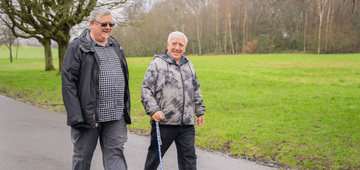RSPH, who provide secretariat to the APPG on Social Media and Young People’s Mental Health and Wellbeing, welcome the highly anticipated publication of the Government’s Online Harms White Paper.
RSPH commends the proposals made in the document, which echo a number of recommendations made in their recently published report with the APPG: #NewFilters to manage the impact of social media on young people’s mental health and wellbeing, including:
- Equipping an independent regulator with the power to force social media platforms and others to publish annual transparency reports on the amount of harmful content on their platforms and what they are doing to address this.
- The development of a statutory ‘duty of care’ to make companies take more responsibility for the safety of their users and tackle harm caused by content or activity on their services.
- A new “Safety by Design” framework to help companies incorporate online safety features in new apps and platforms from the start.
- Measures to ensure companies respond to the complaints of users, and take action to address them quickly.
- Codes of practice, issued by the regulator, potentially including requirements to minimise the spread of misleading and harmful disinformation with dedicated fact checkers.
- A media literacy strategy to equip people with the knowledge to recognise and deal with a range of deceptive and malicious behaviours online.
The APPG is also calling for the creation of a Social Media Health Alliance, funded by a 0.5% levy on the profits of social media companies, to fund research, educational initiatives and establish clearer guidance for the public. It is also calling on the Government to urgently commission robust, longitudinal research, into understanding the extent to which the link between social media and young people’s mental health and wellbeing is one of cause or correlation.
Shirley Cramer CBE, Chief Executive of the Royal Society for Public Health said: “The internet, and in particular social media, has revolutionised the way we communicate and holds vast potential for innovation. Yet throughout our Inquiry with the APPG on Social Media and Young People’s Mental Health and Wellbeing, we have repeatedly heard a range of very serious concerns from a variety of experts and young people surrounding the potential harms which can - and unfortunately often do - result from social media use. Too often these harms fall on the most vulnerable in society.
Our Inquiry found that four in five (80%) of the UK public believe tighter regulation is needed to address the impact of social media on the health and wellbeing of young people and we are pleased the Government has taken the recommendations from the #NewFilters report on board, with proposals for the establishment of a regulator to enforce a duty of care on social media platforms. This is certainly a step in the right direction towards protecting a generation who are increasingly being exposed to what is currently a lawless digital playground. The new framework could also provide a much needed way forward in tackling the spread of vaccine misinformation online.
Yet waiting on legislation to come into effect is not an option at a time when the unfortunate reality is that lives are at risk. It is therefore vital that all stakeholders urgently join forces to support young people, parents and those working with young people, to help mitigate the negative effects which social media can have on mental health and wellbeing.
We are calling for the Government to support the establishment of a Social Media Health Alliance, funded by a 0.5% levy on the profits of social media companies. This alliance would aim to commission and review the growing evidence base on the impact of social media on health and wellbeing, support ambitions for a comprehensive digital education and establish vital clearer guidance on social media use for the public.”



